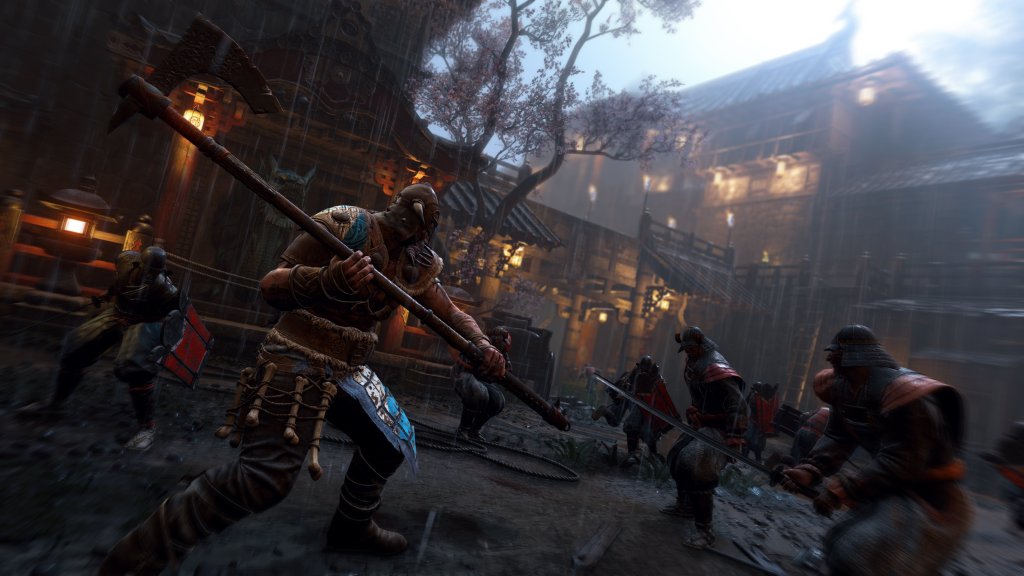One thing everyone knows about For Honor: it's skill floor is not to be trifled with. If you're brave enough to simply pick up a controller and hop right into multiplayer, I wish you the best of luck but will soon expect angry Tweets to pop up on your profile.
Part of that is because it's really easy to miss details in the menus of For Honor and the sheer volume of things to learn. After dozens of hours of playtime, though, I've realized a few things that would have been great to know when I first started. Here are five things I wish I knew before charging on to the battlefield (in no particular order).
1. Boosting Wins Games
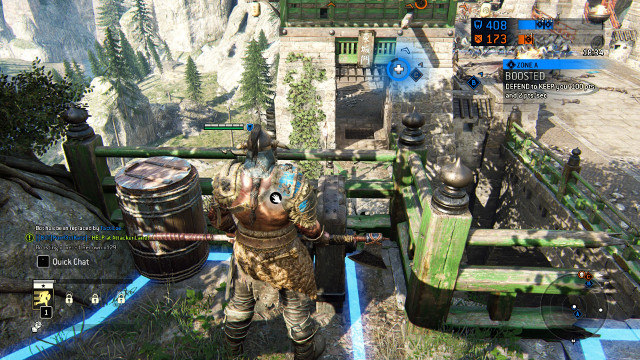
Dominion, in my view, is For Honor's premiere game mode. Some people would argue for duels, but duels are just the combat boiled down to its most basic elements, whereas Dominion is a full exploration of its possibilities.
Boosting, which I went over in my beginner's guide to Dominion, is For Honor's bread and butter. Basically, if you stay within a zone you've already captured, you will earn 2 points per second instead of one, doubling your returns over time. This strategy isn't for everyone, but you should make sure that at least one person on your team is boosting.
It's so tempting as a new player to capture a zone and then charge into battle to secure kills. Here's the thing, kills are worth 5 hard points (can't be lost), which is good. But, if you chose to stay in that captured zone, you could be earning 2 hard points per second, just by standing there.
2. The Game Tells You If Someone Is Defending A Point
In the image above, which you can click to enlarge, I am approaching point A, which is currently controlled by the opposing team. I see there are a few people close by my left side, but I'm not yet in range to see point A on my mini map. But, I can say with 100 percent certainty that no one is there.
In the previous entry, I went over boosting. If a control point is boosted, the team who is controlling that point will get 2 points per second from that control point. But, as you can see, point A is only giving the opponents 1 point per second. Therefore, the point is undefended, and I can capture it for an easy 100 points and boost it for more.
You should definitely use this feature as a way to plan your attack. If you've just won a 1v1 battle with someone, look to the top right and see if one of their points are undefended. If so, go capture it. If you see that it's defended, maybe take a different point or help a friend kill another person. One way or the other, you should never be surprised to see someone waiting for you at a point you intend to capture. For Honor gives you all the information you need.
3. Renown Is A Thing, And Each Hero Type Earns It Differently
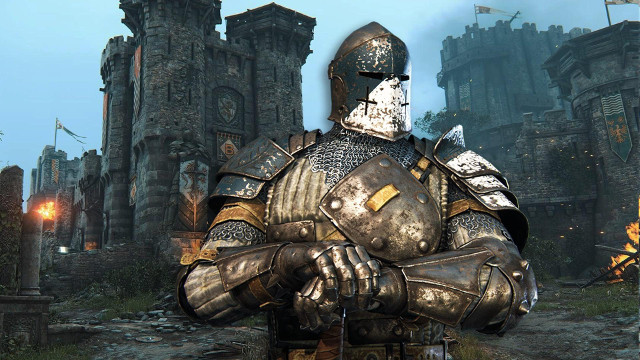
First off, Renown is a thing. It's a resource you gain in any game mode that allows Feats, which are character abilities you can activate to give you health or bonus attack or negatively affect your opponent. Everyone earns renown from generally helping your team, but each of the four hero types earns renown differently.
- Vanguards will earn the most renown from capturing points, killing soldiers and reviving teammates.
- Assassins earn the most renown from contesting zones, killing enemy heroes and getting kill streaks.
- Heavies earn the most renown from defending zones, boosting zones and getting kill assists.
- Hybrids earn renown situationally, from doing what the team needs most, which is a way of saying that it's vague and undefined how to earn more renown as a hybrid, but that's a tradeoff for their versatility.
So, if you're like me, and you like to capture a zone and boost it for most of the game, you may want to play a heavy. That way, you'll earn renown like crazy and build up tons of Feats that make defending a zone all the easier. However, if you like to go on the battlefield and kill your opponents swiftly and often, you'll probably want to play an Assassin. Understanding how individual hero types work is key to being able to play to your strengths.
4. You Can Gain A Ton Of Steel Just From The Tutorial
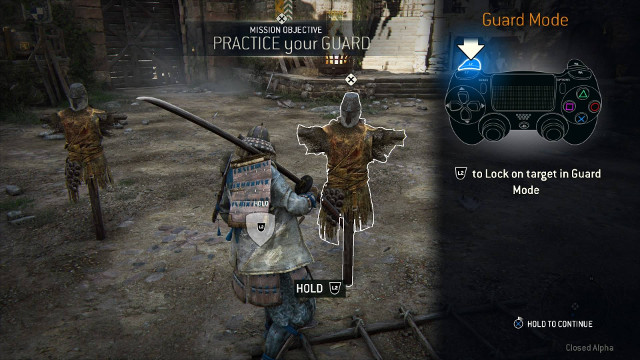
If you're like me, you might think "I don't need practice! I've played this before." But, not doing so can be a huge blunder. For completing the Basic Practice, under the "how to play" section of the main menu, For Honor will reward you with 2000 steel, enough to recruit four heroes.
But, if you're relatively new, you might think "OK, I'll just do the Basic Practice – I don't want to get Overwhelmed," a perfectly reasonable strategy. However, completing the advanced tutorial will give you an additional 1500 steel. This should give you enough to mess around with, be it recruiting a hero type that most fits your playstyle (see above) or upgrading your gear (see below).
However, this does not work for every hero and hero type, unfortunately. You only get the bonus steel for completing the Basic and Advanced Practices the first time you do so. If only, right?
5. Dismantling and Upgrading Gear
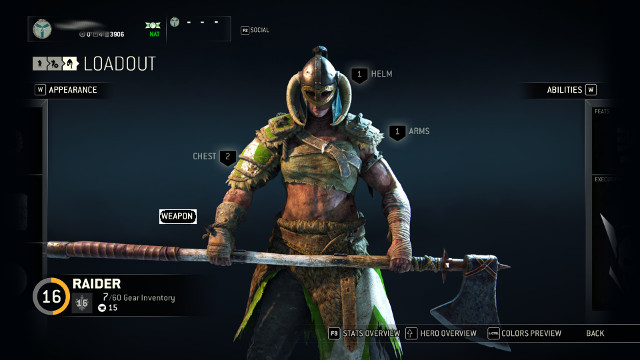
After each multiplayer match, you get rewards depending on how you do. Seemingly every time, that includes on piece of gear – either a weapon part or a piece of armor. And, while I noticed that this gear had would over bonuses in one trait at the cost of another, sort of a pro-con thing.
But this is only half the story, and that's what I learned through more hours. If you don't like a piece of gear, you can dismantle it right from the match summary screen to earn Salvage. Salvage can be used in conjunction with steel to upgrade any piece of gear.
Keep in mind that this will increase the bonus and also increase the negative effect. So, if a piece gives you more defense and less sprint speed, upgrading it will give you even more defense and even less sprint speed, so upgrade with caution.
